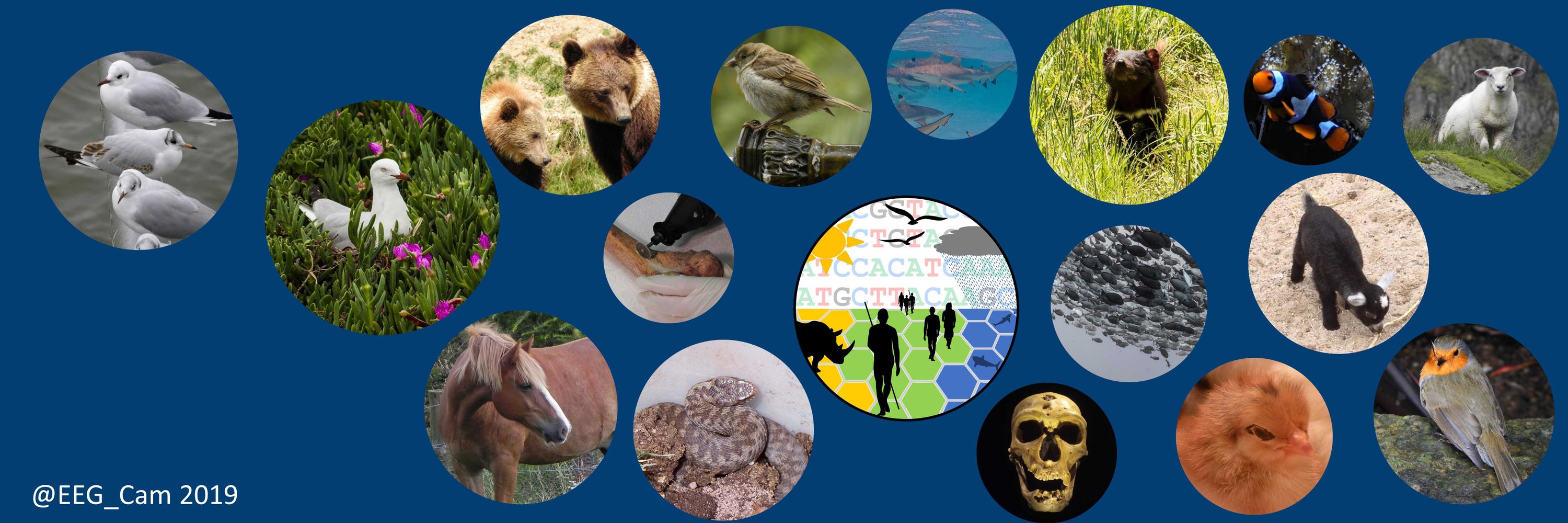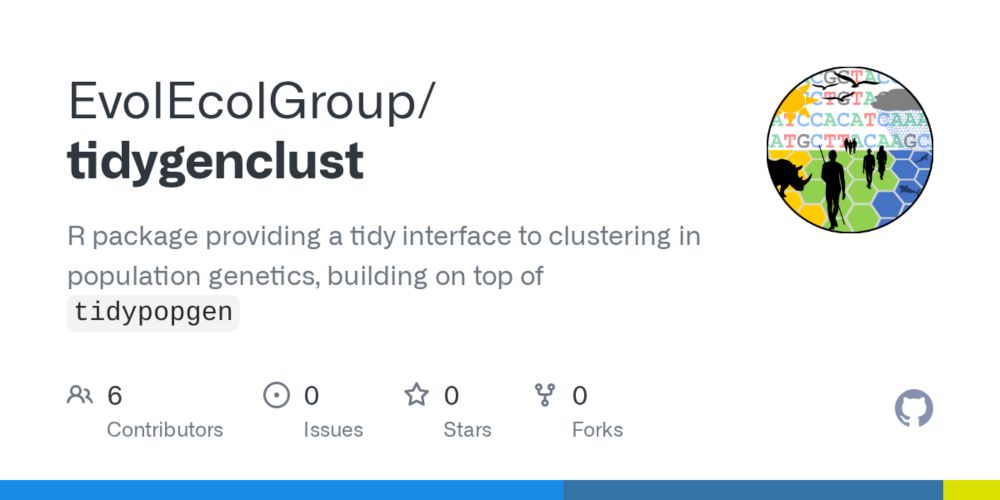
Evolutionary Ecology Group, Cambridge
@eegcam.bsky.social
We are interested in how animals (including humans) respond(ed) and adapt(ed) to changing environments.
Department of Zoology, Cambridge, UK.
PI: Prof. Andrea Manica (he/him)
Website: https://evolecolgroup.github.io/website/
Department of Zoology, Cambridge, UK.
PI: Prof. Andrea Manica (he/him)
Website: https://evolecolgroup.github.io/website/
This has been a wonderful effort by many lab members, and the credits for the fantastic leopard picture go to Ondra Pelanek 📷
October 7, 2025 at 9:33 PM
This has been a wonderful effort by many lab members, and the credits for the fantastic leopard picture go to Ondra Pelanek 📷
Lastly, we saw that Europe also followed this pattern: during warm interglacial periods it was occupied by leopards but population sizes dropped during glacial periods, suggesting that the effect of climate could have been strong enough to catalyse their extinction.
October 7, 2025 at 9:31 PM
Lastly, we saw that Europe also followed this pattern: during warm interglacial periods it was occupied by leopards but population sizes dropped during glacial periods, suggesting that the effect of climate could have been strong enough to catalyse their extinction.
We also found that climate stability over glacial cycles can explain the different levels of differentiation on continents. Africa remained stable over time, whilst Asian demography fluctuated more through glacial cycles, hence creating the isolation for needed for differentiation.

October 7, 2025 at 9:31 PM
We also found that climate stability over glacial cycles can explain the different levels of differentiation on continents. Africa remained stable over time, whilst Asian demography fluctuated more through glacial cycles, hence creating the isolation for needed for differentiation.
This simulated demography provided explanations to many patterns we observe. For example, African leopards show strong isolation from almost all Asian ones, and we found it is due to the shallow corridor between North Africa, the Levant and the Arabian Peninsula after the initial expansion.

October 7, 2025 at 9:31 PM
This simulated demography provided explanations to many patterns we observe. For example, African leopards show strong isolation from almost all Asian ones, and we found it is due to the shallow corridor between North Africa, the Levant and the Arabian Peninsula after the initial expansion.
We found that a simple Out of Africa model can capture the genetic diversity of leopards in Asia and Africa. Among all the demographic parameters, the ones associated with climate showed strongest signal, indicating climate was largely responsible for contemporary leopard demography.
October 7, 2025 at 9:31 PM
We found that a simple Out of Africa model can capture the genetic diversity of leopards in Asia and Africa. Among all the demographic parameters, the ones associated with climate showed strongest signal, indicating climate was largely responsible for contemporary leopard demography.
Why is there only one subspecies in Africa whilst in Asia there are 8? And why did leopards disappear in Europe? In our study, we combine genetics, climate and archaeological data to build a Climate Informed Spatial Genetic Model and try to answer these questions.
October 7, 2025 at 9:31 PM
Why is there only one subspecies in Africa whilst in Asia there are 8? And why did leopards disappear in Europe? In our study, we combine genetics, climate and archaeological data to build a Climate Informed Spatial Genetic Model and try to answer these questions.
Check the package website for more information, example workflows, benchmarking and ideas on how to use tidygenclust: github.com/EvolEcolGrou...

GitHub - EvolEcolGroup/tidygenclust: R package providing a tidy interface to clustering in population genetics, building on top of `tidypopgen`
R package providing a tidy interface to clustering in population genetics, building on top of `tidypopgen` - EvolEcolGroup/tidygenclust
github.com
August 7, 2025 at 9:50 AM
Check the package website for more information, example workflows, benchmarking and ideas on how to use tidygenclust: github.com/EvolEcolGrou...
We always try to be scientifically accurate, clear and inclusive in the way we present our research, but mistakes happen. This is why we are particularly grateful for constructive feedback such as yours! 2/2
July 19, 2025 at 11:03 AM
We always try to be scientifically accurate, clear and inclusive in the way we present our research, but mistakes happen. This is why we are particularly grateful for constructive feedback such as yours! 2/2

